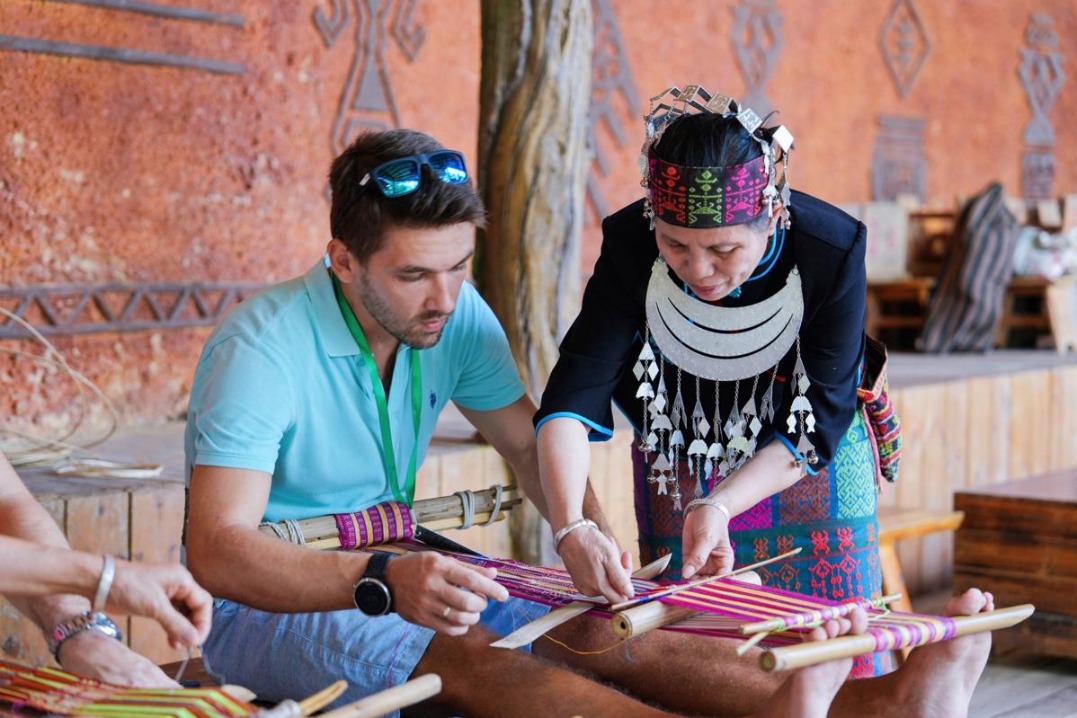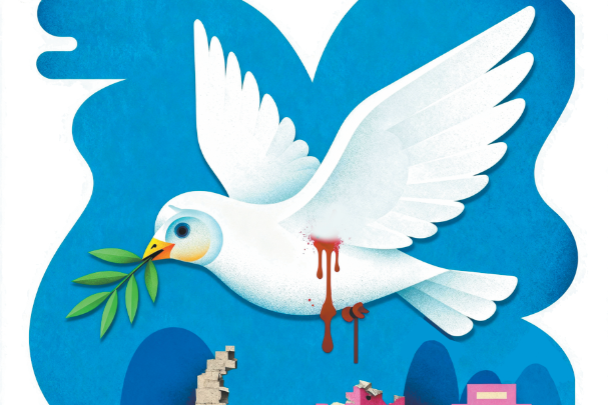Time to boost fight against wildlife crimes


In 2010, poaching and illicit trafficking had brought tigers in the wild close to the point of no return, and the poaching of African elephants and rhinos for their ivory and horn had reached unprecedented levels, with an estimated 100,000 elephants being killed for their ivory in the 2010-12 period alone.
Recognizing the inadequacy of the global response to these highly destructive crimes, the International Consortium on Combating Wildlife Crime was launched at the Global Tiger Summit in Saint Petersburg, Russia, on Nov 23, 2010.
United under the banner of ICCWC, the executive heads of the Convention on International Trade in Endangered Species, Interpol, the UN Office on Drugs and Crime, the World Bank and the World Customs Organization agreed to usher in a new era in wildlife law enforcement-one in which wildlife criminals would face a more determined and coordinated opposition-recognizing the multiple impacts of these crimes, as well as the "possible risks to human health through the spread of disease".
Ten years on, we see that tiger numbers are rebounding, and the disturbingly high levels of poaching of elephants and rhinos and the smuggling of their ivory and horns have been steadily declining. At the same time, though, we are witnessing record levels of poaching of pangolins for their meat and scales, with the trafficking of many other species, including fish and timber, continuing to surge.
Yet today we better understand how these crimes deprive governments of revenue, degrade ecosystems and their ability to sequester carbon, and exacerbate corruption, insecurity and poverty. In 2019, the World Bank assessed the full economic value of these crimes, as they affect all species of wildlife trafficked, including fish and timber, at $1-2 trillion a year.
Today, the world is feeling the full brunt of a pandemic, which most likely had its origins in wildlife, with the UN Intergovernmental Science-Policy Platform on Biodiversity and Ecosystem Services' report on biodiversity and pandemics giving a compelling account of the links between wildlife trade, consumption, emergence of diseases and biosecurity.
In response to the COVID-19 pandemic, we are seeing more local restrictions placed on wildlife trade, markets and consumption that pose a risk to public health, a trend that is sure to continue, and should be addressed under international law. Ensuring such high-risk wildlife trade and consumption do not simply move underground requires a scaled-up enforcement effort.
Yet remarkably, despite its destructive nature and the severe health risks it poses, there is no global agreement on tackling wildlife crime, as there is, for example, on tackling human trafficking.
Humans and wildlife are losing, and the stark reality is that, left as it is, our system is not going to end these highly destructive crimes or prevent the next pandemic.
In 2020, in the face of such a massive ongoing onslaught on wild animals and plants, and what it means for biodiversity, climate change and public health, we need to do much more if we are to win this fight-to scale up our enforcement, financing and laws.
As for the ICCWC, it should continue to strengthen its collaborative enforcement work. It should draw upon the IPBES' biodiversity and pandemics report, which was released in October, and make more efforts to combat trafficking in species that have high potential of spreading diseases.
Besides, development banks must allocate more funds for tackling these highly destructive crimes. They can build capacity, create supportive networks, and help stop illicit financial flows. This is now a necessity, given how the tourism economy, natural wealth and biosecurity are all intertwined.
States on their part should seize the moment to transform international laws. They should embed preventing and combating wildlife crimes into the international criminal law framework, thereby giving us our best shot at reining in these heinous crimes and preventing future pandemics.
They can do this by developing a fourth protocol on wildlife crime under the UN Convention against Transnational Organized Crime, which would ensure countries cooperate to prevent and combat trafficking in wildlife, and respect one another's laws on the conservation and use of wildlife.
As the ICCWC approaches its 10th anniversary, it can claim to have achieved much of what we had hoped for when we signed up a decade ago. We are in a better position today than in 2010 to combat wildlife crimes because of its collective efforts. However, the fight is far from over; in many senses, it has just begun. We cannot stand by and watch wildlife crimes continue to escalate, given the risks it poses to people and the planet, without also scaling up our international response. Now is the time to further ratchet up global efforts to combat wildlife trafficking. And we urge businesses and banks, including those involved in trade and finance, to champion the issue.
A protocol on wildlife crime would be the first time a crime that has a significant effect on the environment is specifically enshrined in international criminal law, reflecting the level of international cooperation that is required to combat wildlife crimes in the post COVID-19 world.
The world's youths are taking a massive hit from the pandemic. We owe it to them to scale up our collective efforts and to pass on a legal framework that is fit to deal with future problems, one that gives us the best chance of avoiding future wildlife-related pandemics and all the misery that comes with it.
John E. Scanlon is former secretary general of CITES, and Robert B. Zoellick is former president of the World Bank.
The views don't necessarily reflect those of China Daily.
If you have a specific expertise and would like to contribute to China Daily, please contact us at opinion@chinadaily.com.cn, and comment@chinadaily.com.cn.


































